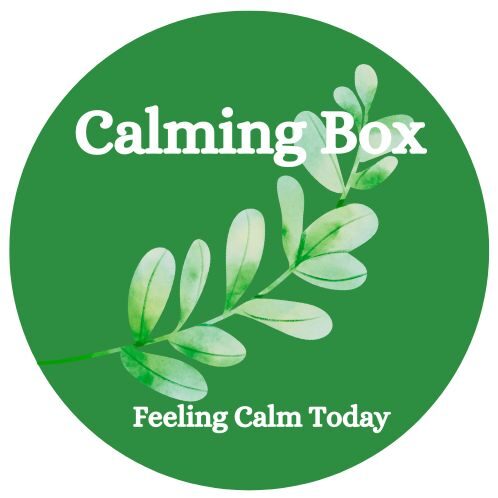Asking Direct Questions to Regulate Your Nervous System as a technique to calm yourself as part of your calming box.
What if a tool from your calming box can help regulate your nervous system and bring you back to a calm, balanced state? Asking direct questions. This technique shifts your beautiful brain from reactive mode to problem-solving mode, allowing you to regain control of your emotions and mental clarity.
In overwhelming situations and discussions emotions surge, and anxiety takes over.Our nervous system goes into overdrive. It triggers the ‘fight or flight’ response, leaving us feeling agitated, or unable to focus.
How the Nervous System Responds to Stress
Our nervous system consists of two primary components: the sympathetic nervous system, which handles the ‘fight or flight’ response, and the parasympathetic nervous system, which controls the “rest and digest” functions.
In stressful situations, the sympathetic nervous system is activated, leading to physical symptoms.Racing heart, shallow breathing, tense muscles, and heightened alertness. It can feel terrible.
While this response is helpful in dangerous situations, it can be triggered unnecessarily by everyday stressors. Work pressure, relationship conflict, family problems, or unresolved thoughts. Prolonged activation of your fight or flight response leads to chronic stress, anxiety, difficulty concentrating or sleeping.
By asking yourself direct questions, you disrupt this cycle, helping to engage your parasympathetic nervous system, which allows your body to relax and recover. Using your calming box of tools to find peace.
Examples of Direct Questions
Let’s explore how asking direct questions regulates your nervous system. These questions encourage clarity, help you focus on what you can control, and promote self-awareness—all calm your nervous system.
- What am I feeling right now? In moments of distress, naming your emotion reduces its intensity. It grounds you in the present moment and provides insight into what’s really bothering you. This question helps you acknowledge your emotions instead of letting them spiral out of control.
- What can I control in this situation? When we feel powerless or overwhelmed, anxiety increases. Shifting your focus to what you can control—whether it’s your reaction, a specific task, or your breath ease feelings of helplessness and calm your system.
- What is the next small step I can take? Sometimes, stress comes from feeling like everything is out of reach or there’s too much to handle. Instead of focusing on the entire problem, break it down into small, actionable steps. This helps prevent overwhelm and restores a sense of control.
- Is my fear based on facts or assumptions? Anxiety often arises from imagined scenarios or exaggerated fears. By challenging these assumptions, you can cut through the noise and focus on the reality of the situation. This process helps reduce fear-driven nervous system activation.
- What do I need right now? Whether it’s a break, a deep breath, or a supportive conversation, recognizing what you need in a moment of stress can help regulate your emotional and physical response. It reminds you to care for yourself in practical ways.
Why Asking Direct Questions Works
When your brain is flooded with overwhelming emotions, it feels impossible to regain composure. However, by asking direct questions, you create an opportunity to move out of an emotionally reactive state and into a more thoughtful, solution-focused mindset.
Direct questions engage the prefrontal cortex, the area of the brain responsible for logical thinking, problem-solving, and emotional regulation. This shift in focus calms the emotional centres of your brain, reducing the physiological responses triggered by the sympathetic nervous system.
The Power of Direct Communication with Others
Asking direct questions is useful for self-regulation and interacting with others. Miscommunication or unresolved tensions trigger stress responses. By asking clear, direct questions—such as, “Can you clarify what you meant?”—you can reduce misunderstandings, promote constructive dialogue, and maintain calm.
This technique works especially well in high-stress environments, like workplaces or difficult conversations with loved ones, where stress levels are prone to rise quickly.
Conclusion: Use Direct Questions as a Tool for Calm
Asking direct questions is a powerful tool for regulating your nervous system and managing stress. By engaging the rational part of your brain, these questions reduce emotional reactivity and restore balance. Next time you feel your nervous system kick into high gear, pause, and ask yourself a few direct questions. You’ll find this technique helps you regain composure, improve focus, and manage stressful situations with greater ease.
The more you practice this technique, the more automatic it becomes, making it a valuable resource for navigating life’s challenges and maintaining emotional equilibrium. Keep building your calming box to create your sustainable foundation of peace.

